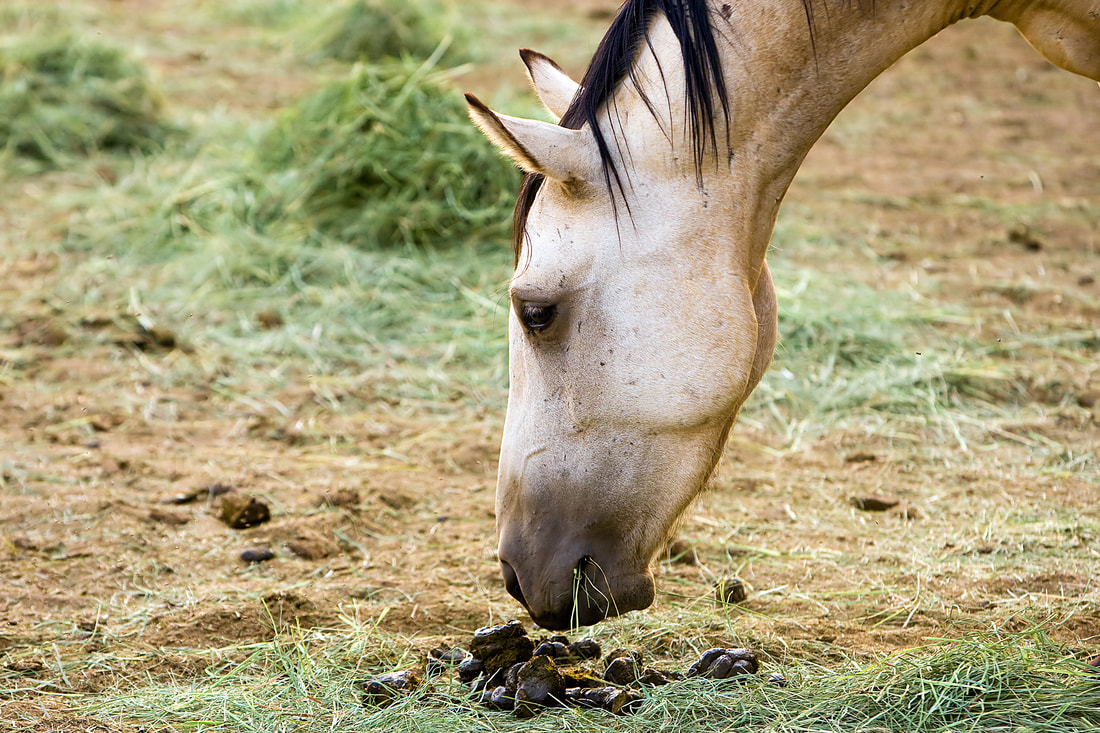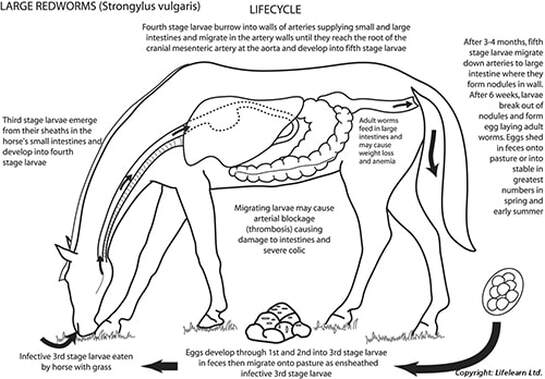|
In the past five years or more there has been a lot of advice and information published about how to appropriately deworm your horse. The ultimate goal is to adequately protect your horse from becoming detrimentally infected with internal parasites that may result in health issues that can vary from being a little underweight to causing death. The concern of Parasitologists and parasiticide manufacturers is that we are limited in the number of products that are maintaining effectiveness against the parasites in question. This is how Evidenced Based Deworming has come about.
Evidenced Based Deworming is a program aimed at limiting the exposure of the parasites to the parasiticides to only what is necessary. So what is necessary? Repeated studies using fecal exams to determine the number of parasites an individual is harboring, has brought them to the conclusion that 20% or less of horses are responsible for the 80% or more of parasite contamination into the environment. It is proposed that the other 80% of the horses are capable of clearing parasites on their own and are in less need of parasiticide. The timing of the fecals collection is important, as they need to be sampled at appropriate withdrawal times after the last dewormer was administered. These times vary depending on what product was last used. This ensures that we are evaluating the ability of the horses immune system to clear the parasites and not on the effectiveness of the last deworming product administered. Fecal samples are taken and the number of parasite eggs are counted. The resulting number helps to categorize the animal into a high, medium, or low shedding category. Once the status of the individual is identified, then a custom deworming protocol can be set for each horse. Keep in mind that no matter what category the horse is in, it will need to be dewormed at least twice a year with either an ivermectin or moxidectin as that has allowed us to eradicate the large strongyle population. It would not be recommended to change your horse to this infrequent of a program without performing a fecalevaluation, as in our experience it has often been the fattest horses that come back as high shedders. However, you cannot categorize your horse by physical appearance. The horses that shed in the high category will need to get dewormed at least 4 times a year. This protocol will only apply to horses over the age of three. Horses under the age of three are always treated as high shedders. |

